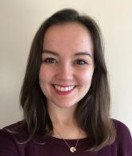Dr Anna Forringer-Beal
Gates Cambridge US Scholarship
Making a Victim: How White Slavery Shapes the UK’s Anti-Trafficking Strategy
Supervisor: Professor Jude Browne (University of Cambridge Centre for Gender Studies)
Abstract:
My doctoral research investigates how the UK approaches the crime of labour exploitation through modern slavery policy. I am interested in understanding how different policy frameworks regarding exploitation result in varied solutions. The UK offers a unique case study as world-leaders in developing the 2015 Modern Slavery Act and an already long history of anti-trafficking policy reaching back to ‘white slavery’ panics in the early nineteenth century. I employ a multidisciplinary socio-legal approach to the law to better situate the legal genealogies behind the Modern Slavery Act and the gendered, racialised social movements which shaped the development of anti-trafficking policy. My unique methodological approach combines policy analysis with queer theories of the nation to argue that Britain has long defined itself and its borders through the language of anti-trafficking and modern slavery. This research carries implications for understanding the interplay between immigration and modern slavery law, border criminologies, and contributes to ongoing conversations in socio-legal studies on the history of empire and the role of race and gender in developing law.
Research Interests:
My research interests include human movement and migration studies, decoloniality, border criminologies, socio-legal studies, human trafficking policy, and queer theory.
Academic Background:
MPhil (Distinction) in Multidisciplinary Gender Studies at Jesus College, University of Cambridge
Bachelor of Arts (High Honors) in Anthropology and Women’s Studies at the University of Michigan
Peer-Reviewed Publications:
A. Forringer-Beal. 2024. ‘Queering the History of the UK’s Anti-Trafficking Sector’ in A Queer Studies Reader, eds. J. Chow and D. Kavanagh. Edinburgh University Press.
A. Forringer-Beal. 2022. Why the ‘Ideal Victim’ Persists: Queering representations of victimhood in human trafficking discourse. Anti-Trafficking Review, issue (19), pp. 87-102. https://doi.org/10.14197/atr.201222196
J. De León, C. Gokee, and A. Forringer-Beal. 2015. ‘Use Wear, Disruption, and the Materiality of Undocumented Migration in the Southern Arizona Desert.’ In Migrations and Disruptions: Unifying Themes in Studies of Ancient and Contemporary Migrations, edited by T. Tsuda and B. Baker, 145-178. University Press of Florida.
General Publications:
A. Forringer-Beal. ‘The Government's focus on 'genuine victims' has failed survivors of modern slavery for decades’ [online]. The Conversation. 20 December 2022. London, UK.
A. Forringer-Beal. ‘White Slavery Rhetoric and the New Plan for Immigration’. The Cambridge Review of Movement and Risk vol. 1, 2021-22. Cambridge, UK.
A. Forringer-Beal. ‘Changing the Story of Human Trafficking’ [online]. The Scholar vol. 18, 2021. Gates-Cambridge Trust, Cambridge, UK.
Dr Jenny Carla Moran
AHRC Doctoral Training Partnership /Cambridge European & Newnham College Scholarship
Loveability
Supervisor: Professor Sarah Dillon (Faculty of English, University of Cambridge)
Abstract:
My research is concerned with emerging technologies. I focus on humanoid robots designed for relations of love as a kind of archive of normative assumptions – how should a “loveable” humanoid robot look, move, and respond to the user in order to be accepted, and what does this tell us about how we think about other humans? I take a critical approach to this, problematising instances in which loved, non-living objects become narratively represented as deserving of rights and protection. I am concerned with this narrative positioning precisely because the same care is not directed toward all living beings equally. In my thesis, I propose an alternative colonial hierarchy of liveliness organised by love projected onto living and non-living things.
Biography:
I am an Affiliated Lecturer for the University of Cambridge Centre for Gender Studies, supervising MPhil in Multi-disciplinary Gender Studies students and POLIS undergraduates. I hold a first-class honours BA in English Studies from Trinity College, University of Dublin, and an MA in Postcolonial Studies from SOAS, University of London.
My research interests include decolonial and postcolonial theory, futurism/the “TESCREAL” bundle, affect theory, queer theory, science fiction, intimacy and love, humanoid robot design, posthumanism, anthropomorphisation, and political influences upon what is seen as alive. I use she/her pronouns, I like ghost stories, and I regularly hang out with an extended family of semi-feral cats.


